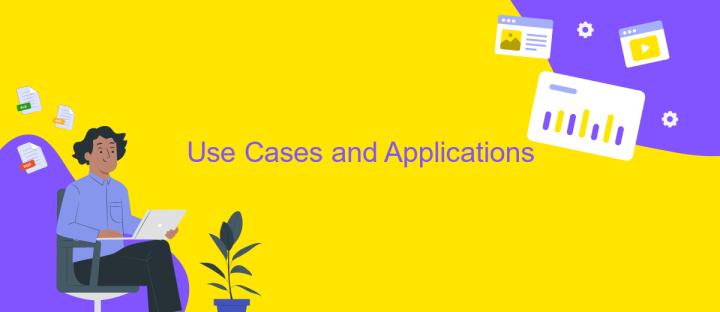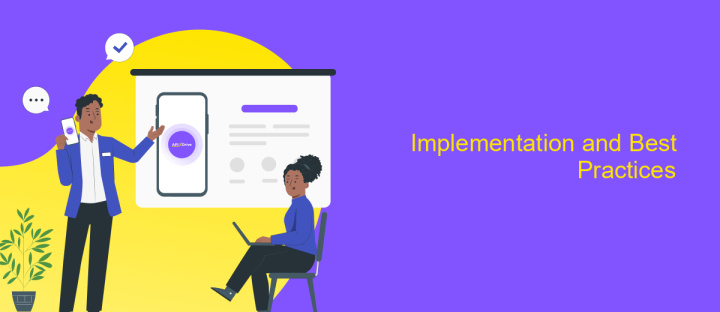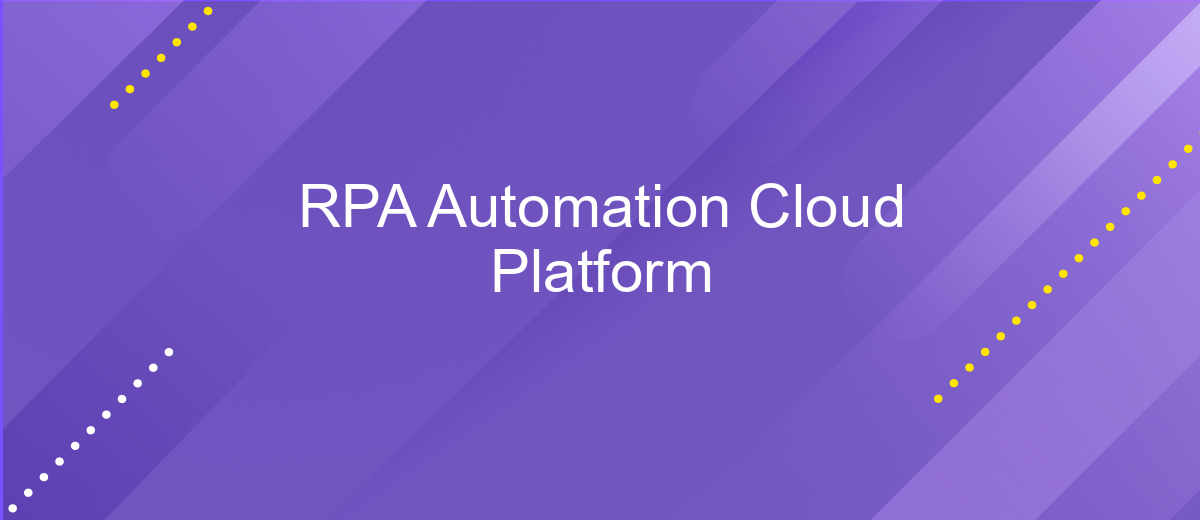RPA Automation Cloud Platform
The RPA Automation Cloud Platform is revolutionizing the way businesses operate by streamlining processes and enhancing efficiency. By leveraging cutting-edge robotic process automation (RPA) technology, this platform enables organizations to automate repetitive tasks, reduce human error, and optimize resource allocation. As companies increasingly adopt digital transformation strategies, the RPA Automation Cloud Platform stands out as a powerful tool for driving innovation and achieving operational excellence.
Introduction
Robotic Process Automation (RPA) has emerged as a transformative technology, enabling organizations to streamline workflows and enhance productivity. The RPA Automation Cloud Platform represents the next evolution in automation, offering scalable, flexible, and efficient solutions to meet diverse business needs. By leveraging cloud capabilities, this platform facilitates seamless integration and rapid deployment, making it an ideal choice for businesses aiming for digital transformation.
- Scalability: Easily adjust resources based on demand.
- Flexibility: Integrate with existing systems effortlessly.
- Cost-Effectiveness: Reduce operational costs through automation.
- Security: Ensure data protection with robust security measures.
As businesses navigate the complexities of the digital age, the RPA Automation Cloud Platform offers a strategic advantage. It empowers organizations to automate repetitive tasks, allowing human resources to focus on higher-value activities. This shift not only boosts efficiency but also fosters innovation and growth. By adopting this cutting-edge technology, companies can stay competitive and responsive to changing market dynamics.
Key Features and Benefits

The RPA Automation Cloud Platform offers a comprehensive suite of tools designed to streamline business processes and enhance operational efficiency. With its intuitive interface and robust capabilities, users can automate repetitive tasks, reducing human error and freeing up valuable time for strategic activities. The platform supports seamless integration with existing systems, enabling businesses to leverage their current infrastructure while optimizing workflows. Its scalable architecture ensures that companies of all sizes can benefit from automation, adapting to changing needs without compromising performance.
One of the standout features of the platform is its ability to facilitate effortless integrations through services like ApiX-Drive. This enables users to connect disparate applications and data sources, ensuring a cohesive and synchronized operational environment. By automating data transfers and communications between systems, businesses can achieve higher accuracy and faster response times. Additionally, the platform's cloud-based nature allows for remote access and collaboration, empowering teams to work efficiently from anywhere. Ultimately, the RPA Automation Cloud Platform not only boosts productivity but also provides a strategic edge in an increasingly competitive landscape.
Use Cases and Applications

Robotic Process Automation (RPA) platforms are transforming the way businesses operate by automating repetitive tasks, enhancing efficiency, and reducing human error. These platforms are versatile and can be applied across various industries to streamline operations and increase productivity.
- In the finance sector, RPA automates data entry, reconciliation, and compliance reporting, significantly reducing processing time and improving accuracy.
- In healthcare, RPA assists with patient data management, appointment scheduling, and billing, allowing healthcare professionals to focus more on patient care.
- Manufacturing industries utilize RPA for inventory management, order processing, and supply chain optimization, leading to reduced costs and improved delivery times.
- Customer service departments benefit from RPA by automating responses to common inquiries, thus enhancing customer satisfaction and freeing up human agents for more complex issues.
Overall, RPA Automation Cloud Platforms are crucial in driving digital transformation across industries. By leveraging these technologies, organizations can achieve greater operational efficiency, ensure compliance, and enhance customer experiences. As RPA continues to evolve, its applications are expected to expand, offering even more innovative solutions to business challenges.
Implementation and Best Practices

Implementing an RPA Automation Cloud Platform requires careful planning and execution to maximize efficiency and effectiveness. Begin by assessing your organization's processes to identify tasks that are repetitive and rule-based, which are ideal candidates for automation. Ensure that you have a clear understanding of the goals and objectives you aim to achieve with automation.
Next, select a suitable RPA tool that aligns with your business needs. Consider factors such as scalability, ease of integration, and security features. A well-chosen platform will provide a seamless transition from manual to automated processes, minimizing disruption.
- Conduct a thorough process analysis to identify automation opportunities.
- Engage stakeholders and ensure alignment with business objectives.
- Develop a robust governance framework to manage and monitor RPA initiatives.
- Continuously evaluate and optimize automated processes for improved performance.
Finally, invest in training and support for your team to ensure they can effectively manage and adapt to the new automated environment. Encourage a culture of continuous improvement, where feedback is used to refine and enhance automation strategies. This approach will help sustain the benefits of RPA and drive long-term success.


Future Trends and Outlook
The future of RPA Automation Cloud Platforms is poised for significant growth and transformation. As businesses increasingly embrace digital transformation, the demand for scalable and efficient automation solutions will surge. With advancements in artificial intelligence and machine learning, RPA platforms will evolve to offer more sophisticated capabilities, enabling organizations to automate complex processes with greater precision and speed. The integration of RPA with other cloud-based services and applications will become more seamless, enhancing the overall efficiency of business operations.
Moreover, the focus on user-friendly interfaces and no-code or low-code solutions will democratize access to RPA technology, allowing non-technical users to design and implement automation workflows. Services like ApiX-Drive will play a crucial role in facilitating these integrations, providing businesses with the tools needed to connect various applications effortlessly. As cybersecurity remains a priority, RPA platforms will continue to enhance their security measures, ensuring data protection and compliance. Overall, the outlook for RPA Automation Cloud Platforms is bright, with innovation driving new opportunities for businesses worldwide.
FAQ
What is RPA Automation Cloud Platform?
How does RPA Automation Cloud Platform improve business efficiency?
What types of processes can be automated with RPA Automation Cloud Platform?
How can businesses integrate RPA Automation Cloud Platform with their existing systems?
Is coding knowledge required to use RPA Automation Cloud Platform?
Apix-Drive is a universal tool that will quickly streamline any workflow, freeing you from routine and possible financial losses. Try ApiX-Drive in action and see how useful it is for you personally. In the meantime, when you are setting up connections between systems, think about where you are investing your free time, because now you will have much more of it.

